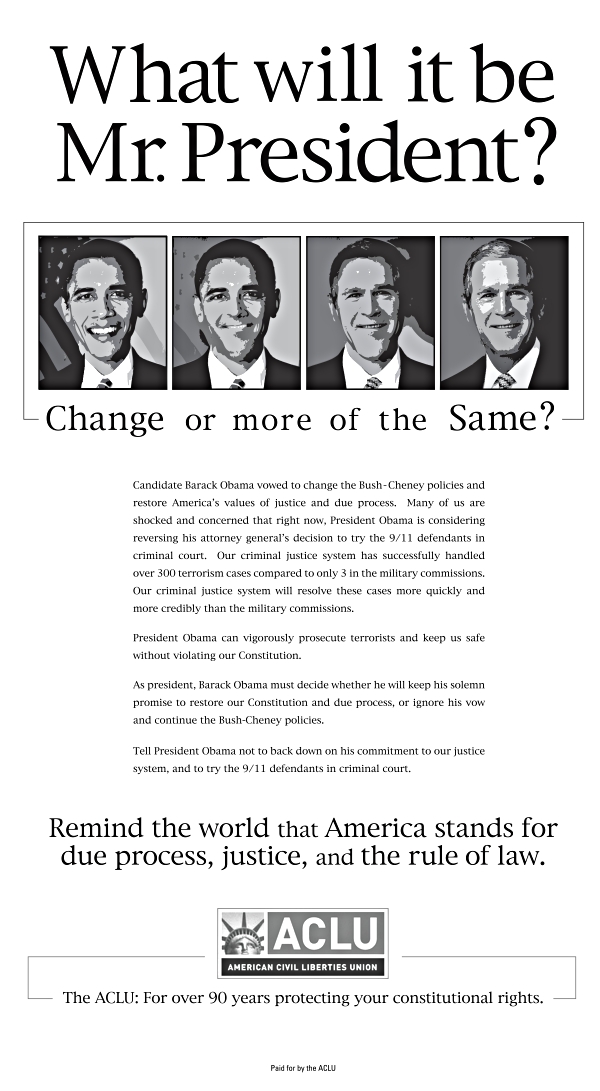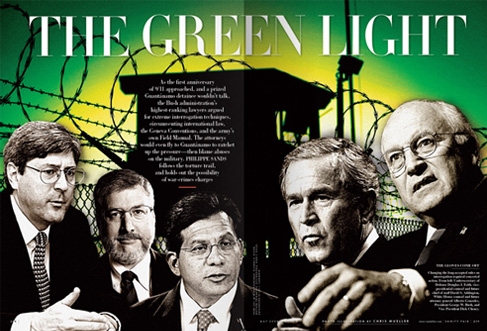The Associated Press reports:
Attorney General Eric Holder told Congress on Tuesday that Osama bin Laden will never face trial in the United States because he will not be captured alive.
In testy exchanges with House Republicans, the attorney general compared terrorists to mass murderer Charles Manson and predicted that events would ensure “we will be reading Miranda rights to the corpse of Osama bin Laden” not to the al-Qaida leader as a captive.
Holder sternly rejected criticism from GOP members of a House Appropriations subcommittee, who contend it is too dangerous to put terror suspects on trial in federal civilian courts as Holder has proposed.
Unless my memory fails me, there was no outrage expressed in Congress when Saddam Hussein was captured, rather than given a summary execution. Nor were there howls of protest when he was imprisoned without torture and treated humanely. Nor were there huge objections against him going through a criminal trial. This for a man widely understood to have been responsible for the deaths of tens of thousands of Iraqis.
And let’s not forget, throughout the time Saddam was being hunted down he was presented as a greater threat to the world than Osama bin Laden.
Do American lawmakers have such little faith in the law they make or in the judicial system that applies that law, that they regard the United States legal system as too feeble an entity to justly handle the fate of one man — even a man given mythical proportions of Osama bin Laden?
As John Brennan — Assistant to the President and Deputy National Security Advisor for Homeland Security and Counterterrorism — pointed out last month, “Terrorists are not 100-feet tall. Nor do they deserve the abject fear they seek to instill.”



